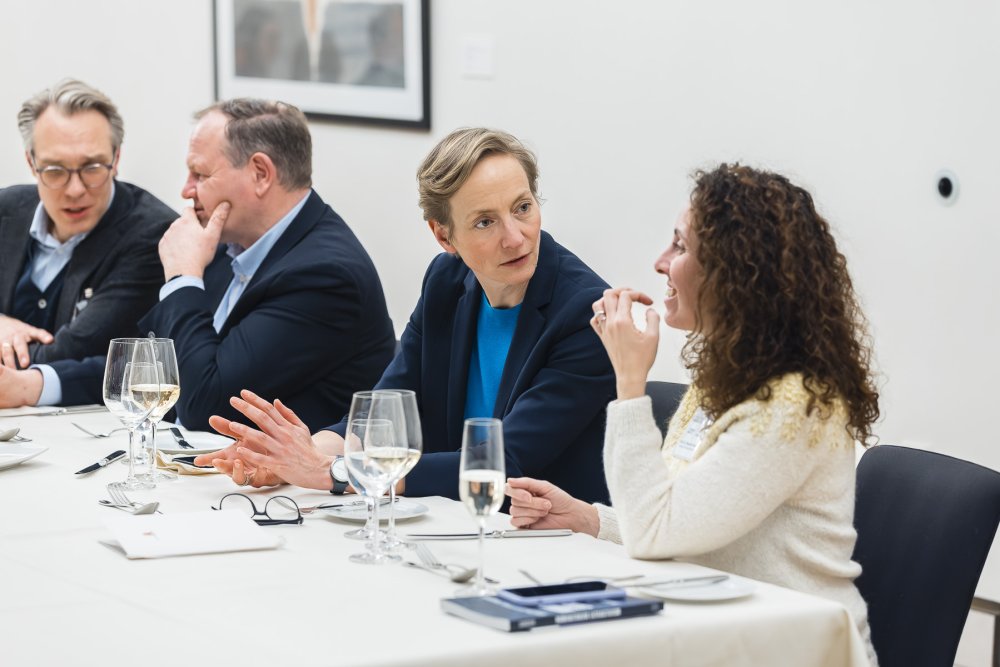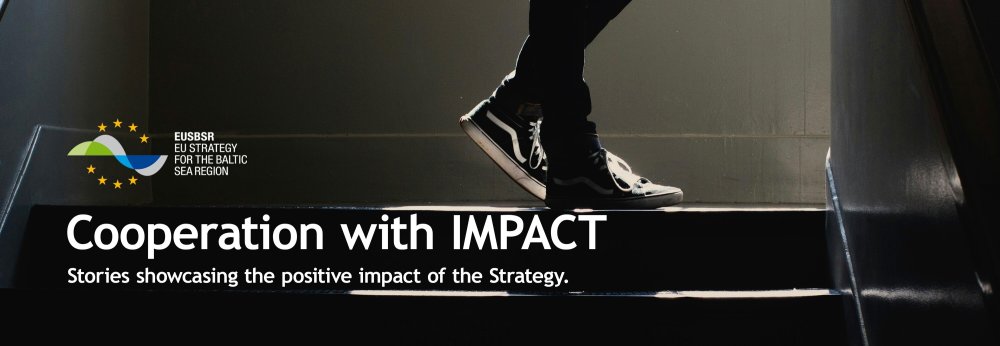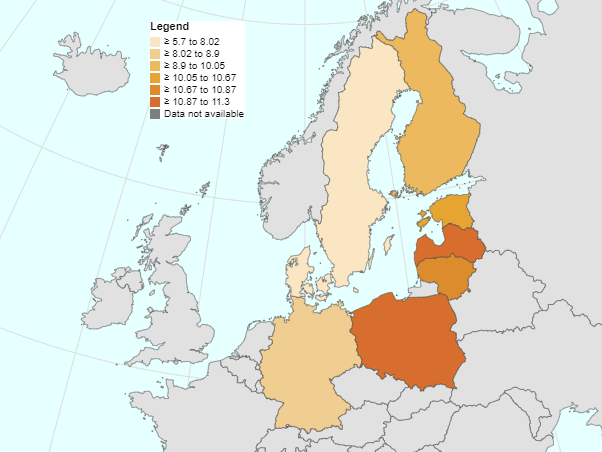PA Education
News
Text: Merle Andraschko, Policy Area Education Coordinator
Pictures: Ines Grabner
Earlier in February, the EUSBSR Policy Area Education jointly with the Institute for Peace Research and Security Policy at the University of Hamburg (IFSH) and the Baltic Science Network hosted a workshop on peace and security in the Baltic Sea Region. The event aimed to make different perspectives on the new security situation in the Baltic Sea region visible and draw conclusions for future research and policy.
The one-day workshop in Hamburg’s representation in Berlin was titled "Re-Thinking the Future of Peace and Security in the Baltic Sea Region – Avenues for Research and Policy." It brought together scholars and analysts from universities, research institutions, and think tanks from around the Baltic Sea to discuss current peace and security dynamics in the Baltic Sea region and build bridges for future discussion processes.
Pathways to effective cooperation in times of war
The first roundtable focused on the repercussions of Russia’s war of aggression against Ukraine on peace and security in the Baltic Sea region. It explored the implications for policy formulation from the perspectives of different regions, such as the Baltics and the Nordics, and delved into the roles of regional security organizations like NATO, EU, and OSCE.
Read more: PA Education: Workshop on peace and security in the Baltic Sea Region
Joining forces for increased prosperity - easing the way to the labour market for vulnerable groups of young adults
Text: Anja Karppinen, Baltic Sea Strategy Point
Addressing vulnerable groups of young adults is an area where the macro-regional approach in the Baltic Sea Region has proven to work well. The determinant cooperation of multiple strakeholders contributes to increasing the prosperity in the region, which is one of the three main objectives of the EU Strategy for the Baltic Sea Region.
Guidance centres for the youth are a successful model when organizing an answer to the societal and individual challenges of young adults not in school, training and without a job. To further develop the functions of these centres, multiple partners around the Baltic Sea, supported by Policy Area Education coordinators, have now created and tested a competence profile for Youth Centre Coordinators.
Young adults not in school nor vocational training and without a job (also referred to as NEETs) are a vulnerable group in our societies, facing a risk of lifelong exclusion that can lead to social problems and challenges to mental well-being. For the societies, this causes costs which could be avoided with timely support. NEETs is a diverse group, which is difficult to find, and difficult to motivate to take the first step to ask for help. Often there are complex reasons behind the situation, and the needed measures from the welfare societies are equally complex.






